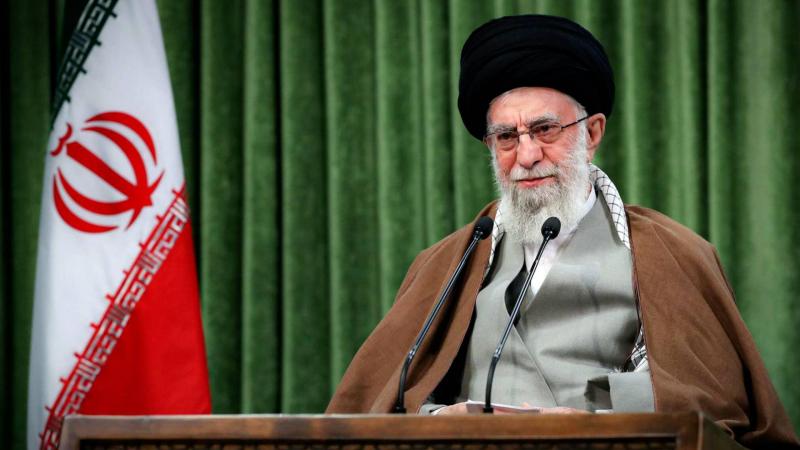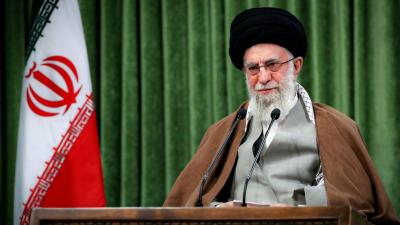The death of the Iranian president is unlikely to lead to any immediate or radical changes in the ruling system in Iran or in the policies dictated by the Supreme Leader, Ali Khamenei. However, analysts believed that Ebrahim Raisi, who died in a helicopter crash on Sunday, was the top candidate to succeed the 85-year-old leader. His death will likely result in the position eventually passing to Khamenei's son.
This succession could create a potential legitimacy crisis for the Islamic Republic, which was established as an alternative to the monarchy.
What are the next steps? How does the Iranian government operate? Iran conducts regular, direct public elections for the president and members of parliament. However, the Supreme Leader has the final say in all major policies and acts as the commander-in-chief of the armed forces while controlling the Islamic Revolutionary Guard Corps. The Supreme Leader also appoints half of the members of the Guardian Council, a religious body consisting of 12 members that scrutinizes candidates for the presidency, parliament, and the Assembly of Experts, which is an elected body of legal experts responsible for selecting the Supreme Leader.
In theory, clerics oversee the republic's system to ensure its compliance with Islamic law. In practice, the Supreme Leader carefully manages the ruling system to balance competing interests, promote his own priorities, and ensure that no faction challenges the Islamic Republic and his leadership role.
Raisi, who was considered one of Khamenei's close disciples, was elected president of Iran in 2021 after the Guardian Council barred any other prominent candidate from competing. Voter turnout in the election that resulted in Raisi's election was the lowest in the history of the Islamic Republic. Following Raisi's death, Vice President Mohammad Makhber, a relatively unknown figure, became the country's interim president, according to the Iranian constitution. An election will be held within 50 days, and this vote is likely to be managed carefully to produce a president who will maintain the status quo, meaning Iran will continue to impose a certain degree of the existing governance. According to insiders, Tehran will keep enriching uranium, supporting loyal groups across the Middle East, and viewing the West with "deep suspicion."
What does this mean for succession? Presidents come and go, some more moderate than others, but all operate within the structure of the ruling system. Any significant change in Iran is likely to occur after Khamenei's death, when a new Supreme Leader is chosen for the second time since the 1979 Islamic Revolution. Khamenei succeeded the founder of the Islamic Republic, Khomeini, in 1989.
The Assembly of Experts, composed of 88 members, will choose the next Supreme Leader. The members are elected every eight years from candidates vetted by the Guardian Council. In the most recent elections in March, which resulted in Raisi's election, the council barred Rouhani from running. Any discussion regarding the succession, or related maneuvers, occurs behind closed doors, making it difficult to ascertain the identity of the next president.
However, there are two individuals that analysts regard as the most likely successors to Khamenei: Raisi and Khamenei's son, Mojtaba (55 years old), who is a Shiite cleric and has never held any government position.
What will happen if Khamenei's son assumes the position of Supreme Leader? According to the Associated Press, since the 1979 revolution, leaders of the Islamic Republic have portrayed their system as "unique," superior not only to the "decadent" democracies of the West but also to the military dictatorships and monarchies prevalent throughout the Middle East.
The transfer of power from the Supreme Leader to his son could provoke anger not only among Iranians—who already criticize clerical rule—but also among regime supporters who might view such a transition as "un-Islamic." The implementation of Islamic governance, which has become harsher during Raisi's presidency, has further alienated women and youth. The Islamic Republic has faced several waves of public protests over recent years, the latest following the death of Mahsa Amini in 2022, who was detained by police for allegedly not wearing her hijab correctly.
Raisi's death may complicate the process of selecting a new Supreme Leader after Khamenei's demise and could provoke further unrest within the country. On Monday, Iranian television reported that the heads of the three branches of government in Iran agreed on a date for early presidential elections in the country, just a day after confirming Raisi's death in a helicopter crash in northwestern Iran.
Article 131 of the Iranian constitution outlines how to handle any emergencies resulting from a vacancy in the presidency, stating that in the event of the president's death, removal, resignation, absence, or illness for more than two months, or if the presidential term ends and a new president is not elected due to obstacles or similar issues, the first vice president will perform the functions of the president and will enjoy his powers with the approval of the Supreme Leader. Currently, the Iranian first vice president is Mohammad Makhber, who was appointed by Raisi when he assumed the presidency in 2021.
Are there any changes in Iran's policy direction after Raisi? According to a report by Politico, the U.S. administration does not expect that the death of the Iranian president will lead to significant changes in the system or in Tehran's policies in the region, even with the election of a new head of state. Washington is monitoring how Iran deals with the current crisis and what that may mean for competition over the Supreme Leader position, which may depend on Khamenei's health. Nonetheless, the Biden administration believes that Iran will be preoccupied with its internal issues "to the extent that it will be unable to make significant changes in its regional policies, including its support for destabilizing proxy forces across many Arab states and Israel and the United States," according to a Politico analysis. A senior administration official stated, "I’m not betting on any changes in policy."




